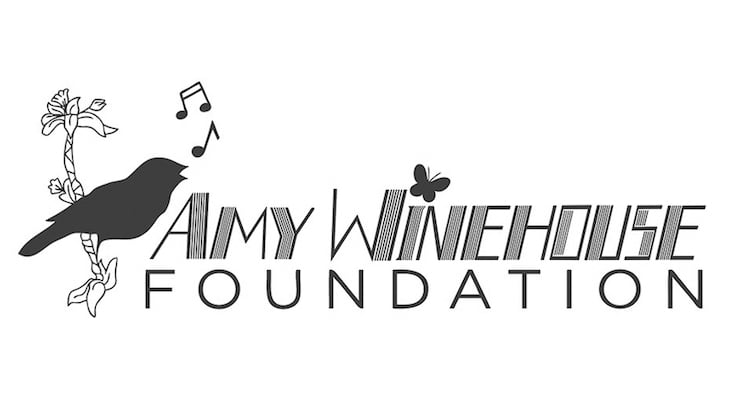Amy Winehouse may have sadly passed away from alcohol poisoning in 2011 after a long battle with addiction, but her legacy lives on a decade later in the form of the Amy Winehouse Foundation.
Many women and young people struggling with addiction have found support in this charity which has had success in guiding them away from substance use and helping them to reintegrate into society after completing an addiction treatment programme.
It is common for women dealing with addiction to have experienced physical and sexual abuse, turning to drugs and alcohol as a way to self-medicate. Young women may also be susceptible to peer pressure, particularly if the majority of their friends are experimenting with various substances.
Thankfully the Amy Winehouse Foundation provides a safe environment for young women to get back on their feet after treatment in the form of Amy’s Place.
What is Amy’s Place?

Funded by the Amy Winehouse Foundation, Amy’s Place provides safe accommodation for young women who have recently completed addictiontreatment. There is space for 16 women with each one providing her own apartment on a temporary basis as a way to bridge the gap between addictiontreatment and daily life.
Many women dealing with addiction have also escaped abusive homes and relationships, and as a result, it can be particularly challenging for them to build strong support systems and stay motivated throughout recovery. In order to prevent relapse, they require a stable home life and ongoing support as they learn to function within society again.
Assisted by specially-trained workers, women who are supported by Amy’s Place gain key life skills during their stay that will assist them in their long-term recovery goals and allow them to merge back into society.
What is the Amy Winehouse Foundation?

The Amy Winehouse Foundation is a charity established in the UK that focuses on working with young people in order to assist them with drug and alcohol addiction recovery. Additionally, the charity teaches healthy coping skills and provides advice and support in order to steer young people away from substance use.
Set up in 2011 in the memory of Amy Winehouse, the charity aims to reduce substance use and addiction among young people while bridging the gap between treatment and recovery.
How do I know if I have an addiction?

Many women may find it difficult to acknowledge that they have an addiction, and may find it relatively easy to hide the signs from close family or friends and even from themselves. However, there are a number of warning signs to look out for within yourself that can signify a physical or psychological dependency.
Common signs and symptoms of addiction:
- I spend a large amount of time thinking about, obtaining and using drugs or alcohol
- My performance at work or school has started to decline
- I have stopped participating in events, hobbies and activities that I once enjoyed
- I have experienced negative repercussions relating to my drug or alcohol use such as being arrested or losing a relationship, but I continue to use them
- I primarily associate with other people who also use drugs or alcohol
- I struggle to find motivation in anything apart from using drugs or alcohol
- I use drugs or alcohol in order to calm myself down or avoid experiencing certain emotions
- I feel agitated, anxious and restless if I am not able to use drugs or alcohol
- My family, friends or colleagues have expressed concern and worry over my substance use
- I have tried to stop using substances but I experience strong cravings and eventually start using them again
- I have noticed that I begin to experience withdrawal symptoms if I am unable to obtain drugs or alcohol
While you may not be experiencing all of the above symptoms, it is recommended that you seek professional support if you have concerns about your substance use and/or can relate to some of the above points. There is no shame in struggling with an addiction, and it’s important to find the help and support you need in order to start your recovery journey.
How are women affected by substance use and addiction?

There are a number of key differences in how women are affected by substance use and addiction, as well as certain substances that women are more likely to become addicted to.
Some studies have found that women are more affected by cravings than men and may therefore be more likely to relapse if they become triggered. Women may also become addicted in a shorter timeframe than men and may require smaller amounts of a specific substance in order to form a physical or psychological dependency. [1]
Alcohol
Alcohol addiction has historically been more common in men, but in recent years women have begun to consume this substance at similar levels. As women are generally smaller and lighter than men they require less alcohol to become intoxicated, and as a result, they can drink less than men but still develop a physical or psychological dependency. [2]
Opioids
While men are more likely to misuse opioids and develop an addiction to this drug, women are more likely to fatally overdose. As women release more dopamine in response to taking opioids they are more likely to develop an addiction at a faster rate than men, although they commonly choose to ingest this substance in other ways rather than injecting. [2]
Cannabis
While both men and women seek treatment for cannabis addiction at similar rates, women are more likely to suffer from panic attacks and anxiety in response to this substance. Some studies show that women are less affected by the ‘high’ of cannabis and instead suffer more from spatial memory impairment. [2]
Ecstacy
It is thought that women respond differently to ecstasy than men, experiencing stronger hallucinations while using this substance and higher levels of depression the next day. [3] Women are also more likely to drink large amounts of water due to the effects of ecstasy which can cause the brain to swell and lead to fatal consequences.
References
[1] https://www.drugabuse.gov/publications/drugfacts/substance-use-in-women





